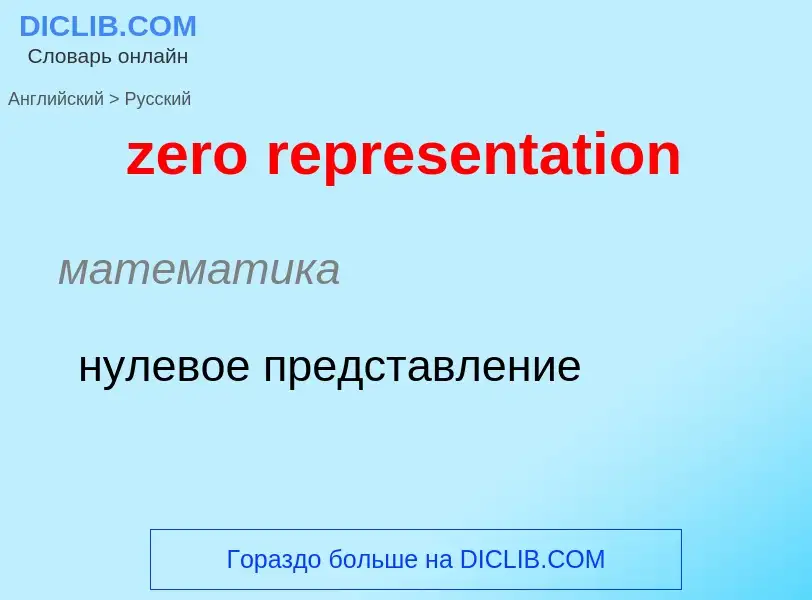Vertaling en analyse van woorden door kunstmatige intelligentie ChatGPT
Op deze pagina kunt u een gedetailleerde analyse krijgen van een woord of zin, geproduceerd met behulp van de beste kunstmatige intelligentietechnologie tot nu toe:
- hoe het woord wordt gebruikt
- gebruiksfrequentie
- het wordt vaker gebruikt in mondelinge of schriftelijke toespraken
- opties voor woordvertaling
- Gebruiksvoorbeelden (meerdere zinnen met vertaling)
- etymologie
zero representation - vertaling naar russisch
математика
нулевое представление
общая лексика
направленность
['graund'zi(ə)rəu]
общая лексика
эпицентр атомного взрыва
центр
самая середина
ядро
Definitie
Wikipedia
Modular representation theory is a branch of mathematics, and is the part of representation theory that studies linear representations of finite groups over a field K of positive characteristic p, necessarily a prime number. As well as having applications to group theory, modular representations arise naturally in other branches of mathematics, such as algebraic geometry, coding theory, combinatorics and number theory.
Within finite group theory, character-theoretic results proved by Richard Brauer using modular representation theory played an important role in early progress towards the classification of finite simple groups, especially for simple groups whose characterization was not amenable to purely group-theoretic methods because their Sylow 2-subgroups were too small in an appropriate sense. Also, a general result on embedding of elements of order 2 in finite groups called the Z* theorem, proved by George Glauberman using the theory developed by Brauer, was particularly useful in the classification program.
If the characteristic p of K does not divide the order |G|, then modular representations are completely reducible, as with ordinary (characteristic 0) representations, by virtue of Maschke's theorem. In the other case, when |G| ≡ 0 mod p, the process of averaging over the group needed to prove Maschke's theorem breaks down, and representations need not be completely reducible. Much of the discussion below implicitly assumes that the field K is sufficiently large (for example, K algebraically closed suffices), otherwise some statements need refinement.

![Monument marking the hypocenter, or ground zero, of the atomic bomb explosion over [[Hiroshima]]. Monument marking the hypocenter, or ground zero, of the atomic bomb explosion over [[Hiroshima]].](https://commons.wikimedia.org/wiki/Special:FilePath/Hiroshima-Hypocenter.jpg?width=200)
![In mapping the effects of an atomic bomb, such as on the city of [[Hiroshima]] here, concentric circles are drawn centered on the point below the detonation and numbered at radial distances of 1,000 feet (305 meters). This point below the detonation is called "Ground Zero". In mapping the effects of an atomic bomb, such as on the city of [[Hiroshima]] here, concentric circles are drawn centered on the point below the detonation and numbered at radial distances of 1,000 feet (305 meters). This point below the detonation is called "Ground Zero".](https://commons.wikimedia.org/wiki/Special:FilePath/Hiroshima Damage Map.gif?width=200)

![The [[World Trade Center site]], as it appeared in October 2004. The [[World Trade Center site]], as it appeared in October 2004.](https://commons.wikimedia.org/wiki/Special:FilePath/World Trade Center site 2004.jpg?width=200)
![Aerial view of the [[World Trade Center site]] in September 2001. Aerial view of the [[World Trade Center site]] in September 2001.](https://commons.wikimedia.org/wiki/Special:FilePath/Wtc-photo.jpg?width=200)
